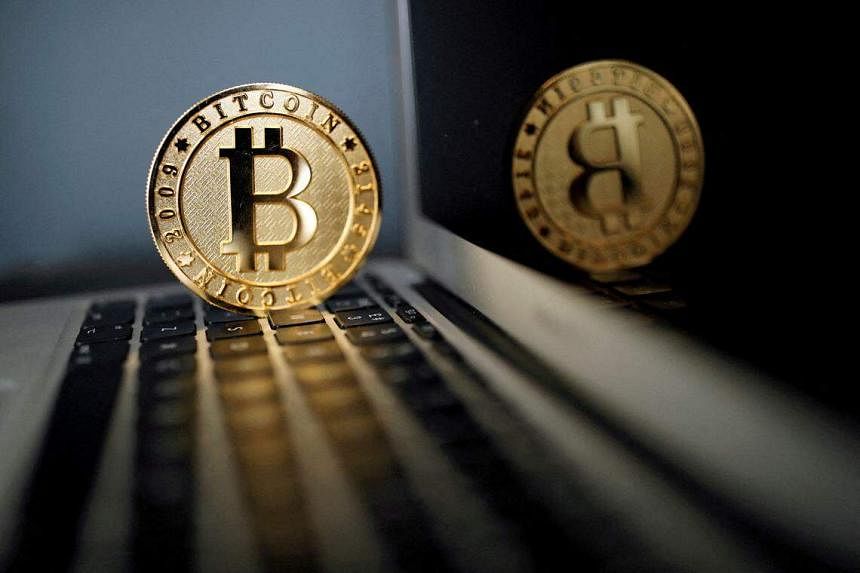SINGAPORE – Bitcoin appears to be back in favour with investors after the popular cryptocurrency pushed past US$30,000 last week – the first time it has hit that level since June 10, 2022.
The largest digital currency by market capitalisation has risen by more than 70 per cent since January, outstripping an 8 per cent climb in global stocks, noted Bloomberg.
There has been a marked turnaround after a series of high-profile bankruptcies in the sector sent Bitcoin’s price tumbling from a peak of around US$68,000 in November 2021 to just over US$15,000 in November 2022.
Bitcoin’s rebound also follows 2023’s failure of Swiss bank Credit Suisse and three United States banks, two that did business extensively with the crypto sector.
The events have revived the case for crypto as an alternative, decentralised banking system unhampered by financial intermediaries like banks. They are also testing the US Federal Reserve’s resolve to keep interest rates high.
The Fed started hiking rates to tame inflation in 2022, a move that triggered an outflow of cash from risky assets like crypto, but has since hurt parts of the economy.
Any U-turn could once again raise crypto’s appeal as an alternative investment class.
DBS chief economist Taimur Baig said: “We associate this year’s rebound in cryptocurrencies with expectations of a peak in the global monetary policy cycle and as an expression of risk diversification by investors.”
Interest in crypto investing remains high in Singapore despite a general lack of understanding about the sector, said consultancy CT Group.
Its online poll of 1,057 Singaporeans in March showed that about 60 per cent are likely to buy crypto in the next few years, believing it can help them get ahead. But nearly 50 per cent said they were not confident in explaining what crypto is to others, revealing a poor understanding of the product.
If crypto is on your radar, here’s what to know before hopping on board.
Crypto valuations are mostly based on speculation
The market has yet to find a way to fundamentally value Bitcoin and other cryptocurrencies.
A research paper by the CESifo International Research Network in February noted that investors tend to view cryptocurrencies as a gamble rather than a way to pay for real economic transactions.
It has found that users are more likely to make active use of crypto exchange apps in the months after a rise in the price of Bitcoin.
CESifo estimated that between 73 per cent and 81 per cent of global investors have likely lost money on their crypto investments, and that larger investors – known as whales – have tended to sell when smaller investors are buying.
Research published in the Journal Of Risk And Financial Management noted in February that crypto can be influenced by factors such as changing regulations, liquidity and technical issues, and market sentiment.
So investors should always make sure they understand the risks involved before dabbling in crypto.
The paper said that some investors buy crypto as an inflation hedge, and pointed out that “as there are no underlying assets to support the value of crypto, its market value is dependent entirely on speculation”.
Regulations
The Monetary Authority of Singapore (MAS) strongly discourages speculation in cryptocurrencies.
But it noted in 2022 that easy access to crypto and its appeal to consumers enticed by the prospect of sharp price increases warranted a more comprehensive set of regulatory measures to reduce the risk of consumer harm here.
MAS will soon adopt a risk-focused approach to regulating the digital asset ecosystem.
It has also noted that regulations need to be clear and proportionate to the risks posed to facilitate innovation in the sector.
Crypto has come under greater scrutiny globally following 2022’s collapses. In 2023 alone, the US Securities Commission has sued a few crypto exchanges, including Binance and Coinbase.
Most recently, it accused Bittrex of listing six tokens that were unregistered securities.
Some argue that the increasing regulatory clampdowns could hold back development in the sector.
However, CT Group’s survey found that arguments in favour of consumer protection drown out those associated with the need to maximise economic gain.
Its study showed that nearly half the Singaporeans surveyed strongly support increasing policing for crimes involving cryptocurrency and protection for investors.
Mr Yam Wern-Jhien, director at law firm Setia Law, said: “The next wave of regulations will see more measures involving consumer protection. This will inject more confidence to invest in crypto, and encourage more capital that can be channelled towards developing the industry.”
Some tokens will become more useful
While regulations might slow growth in the short term, they will spur more sustainable development in the blockchain industry over the longer term, Mr Yam noted.
Setia Law managing director Danny Ong said: “The first age of crypto has come and passed with the big collapses last year and cleaning up of the industry.
“We are now moving into the second age, where the focus will be less on price and speculation, and where discussions will be about how crypto and blockchain can benefit the commercial world and how to bring these uses to life.”
Mr Baig of DBS believes crypto can be used to settle transactions in decentralised finance, such as in the metaverse.
Still, he said: “The link between cryptocurrencies and traditional finance remains somewhat tenuous, which requires further improvements in reporting standards, custody infrastructure, settlement, and investor safeguards.”


